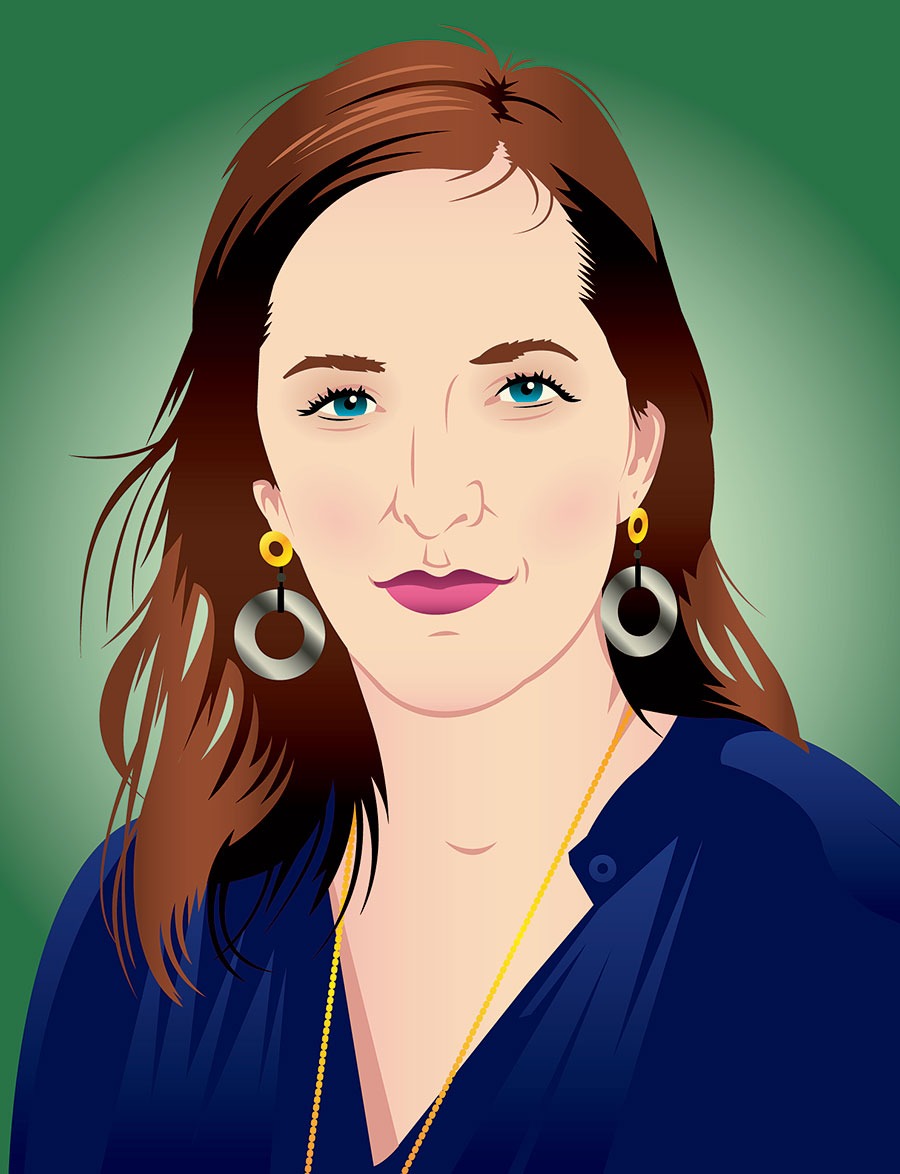■ Both of my parents published books. My father was a professor [of linguistics] and a poet whose mother was a well-known novelist in Hungary. She died when I was a baby, but I was always aware of that. I don’t think I ever went, “Wow, that looks like a great life,” because she spent her life writing under Soviet oppression and did not make a lot of money and was constantly being censored. So nothing I heard made writing sound glamorous or like a great career choice. It just didn’t seem like it was out of the realm of possibility.
■ I’ve never, in my entire writing career, been as happy as I was when the Iowa Review [accepted my first] story. This was at the tail end of snail mail submissions. I was upstairs in a library and assumed it was a rejection, because it was very slim. Then I opened it and saw this note. I ran downstairs and jumped on my husband’s back. We were screaming and hugging and everyone was staring. What happened when I was a Pulitzer finalist — not even close.
■ The first review of my first book was a great starred review from Booklist. Then the second was this snarky, dismissive review from Publishers Weekly. At that point, that was 50 percent of the reviews I’d ever received in my life. I thought my career was over. My husband and I had tickets that night to go see David Sedaris, and I was the one person in the whole audience sitting there stonefaced.
■ I get really drawn into unsolved mysteries. It’s not fair and I understand what’s wrong with it, but if there’s an obituary for someone who died young, especially if they don’t give the cause of death, there’s something upsetting about that to me. It’s like, Wait, I’m being denied something that I need to know.
■ The flip side of ADHD is hyperfocus. If I’m doing something I’m really into, I can do it for hours. Writing is one of those things. And then I’m like, Why are my legs asleep? I have to set an alarm so I remember to stop and go pick my kid up from school.
■ My father, he knew everyone, and everyone had stories about him. He was constantly saying inappropriate things. A major, major character. If you run into anyone who taught at UIC in the ’60s through 2000 or so, it’s likely to be, “He was so rude to this visiting guest we had. But then he threw a great party.”
■ There was a thing a few years ago where a lot of MAGA people were mad at me. Someone came to my reading in New York with a red hat that said “Make America Read Again.” But I couldn’t see that from where I was sitting. I just saw the shape of the words, and it’s this guy lurking in the back. Given that my book was about AIDS, I really was alarmed. So I tweeted, “Hey, could normal people stop wearing red baseball caps?” And then, oh my God, it was on Fox News. Sean Hannity was all over it, then Herman Cain and Ben Shapiro. People tried to doxx me. They were calling places where I was going to read and threatening to show up. It was like, OK, this is not gonna have an impact on my career, but it’s a little scary.
■ I’m in the early stages of drafting a new book that’s requiring a lot of research into the rise of the Nazis. It is not a book about a Nazi, and it is not a Holocaust book. But it’s a good time to write about complicity, I think. So that’s what I’m going to do.



